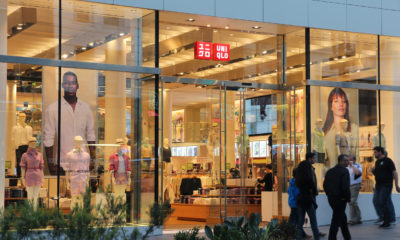It may be appropriate that a movie about The Grinch was the box-office champ of the holiday season. Because something seems to have stolen Christmas for the nation's retailers. Despite a fifth shopping weekend, and a fairly strong one at that, early retail reports show a disappointing 2000 holiday selling season. A variety of sources show results that were described as flat, unimpressive and worrisome. “Retailers are going to remember this as a Christmas season that took place during a recession,” said Carl Steidtmann, chief retail economist at PricewaterhouseCoopers. The season will be followed, predicted Steidtmann, by “less expansion, more consolidation and more bankruptcies.”
All results are not yet in, of course, but the International Council of Shopping Centers has reported 2.2 percent sales increases at mall-based specialty stores, a significant drop-off from 1999's 7.7 percent increase. Jewelry sales were down 3.2 percent from last year, said the ICSC, and home entertainment systems and electronics products were off 6.3 percent.
TeleCheck Services, Inc., which monitors nationwide spending by check, said the 3.2 percent sales increase it has tracked was the worst performance since 1991. (A year ago, TeleCheck reported a 6.5 percent gain.)And Merrill Lynch has predicted a 2.4 percent gain, the worst one it has calculated since 1990.
The results were especially disappointing following a fairly active post-Thanksgiving weekend and a busy final pre-Christmas weekend. The National Retail Federation reported that 72.1 million consumers visited U.S. malls and 90 million shopped at department stores on Saturday, December 23, making it the busiest day of this holiday season. According to TeleCheck, it took a last-minute surge in spending over the fifth shopping weekend to boost same-store sales to a 3.1 percent increase. “Shoppers accelerated their spending pace during the final week before Christmas,” said William Ford, TeleCheck's senior economic adviser, “with three of those days making the list of the season's top five shopping days.” Ford regards the holiday figures as “good, considering the continued rise in energy and fuel costs, declining consumer confidence and the severe weather in much of the Midwest and Northeastern regions of the country.”
A flurry of more post-season sales is hoped to generate shopping activity. (ICSC says that the week after Christmas traditionally accounts for about 11 percent of holiday sales.) But many economists have concluded that the season was disappointing and, worse, a precursor of some tough economic times ahead. “Consumers are on the leading edge of feeling economic pressure that they have not felt for five years,” said Stephen Roach, chief economist at Morgan Stanley Dean Witter. Roach noted that Americans at all levels have been hit by the drop in the stock market, the pain of higher gasoline and natural gas prices and an overall financial queasiness.
Advertisement

 Photo Gallery3 days ago
Photo Gallery3 days ago
 Headlines1 week ago
Headlines1 week ago
 Sector Spotlight2 weeks ago
Sector Spotlight2 weeks ago
 Headlines1 week ago
Headlines1 week ago
 Headlines4 days ago
Headlines4 days ago
 Headlines2 weeks ago
Headlines2 weeks ago
 Designer Dozen1 week ago
Designer Dozen1 week ago
 Headlines2 days ago
Headlines2 days ago














